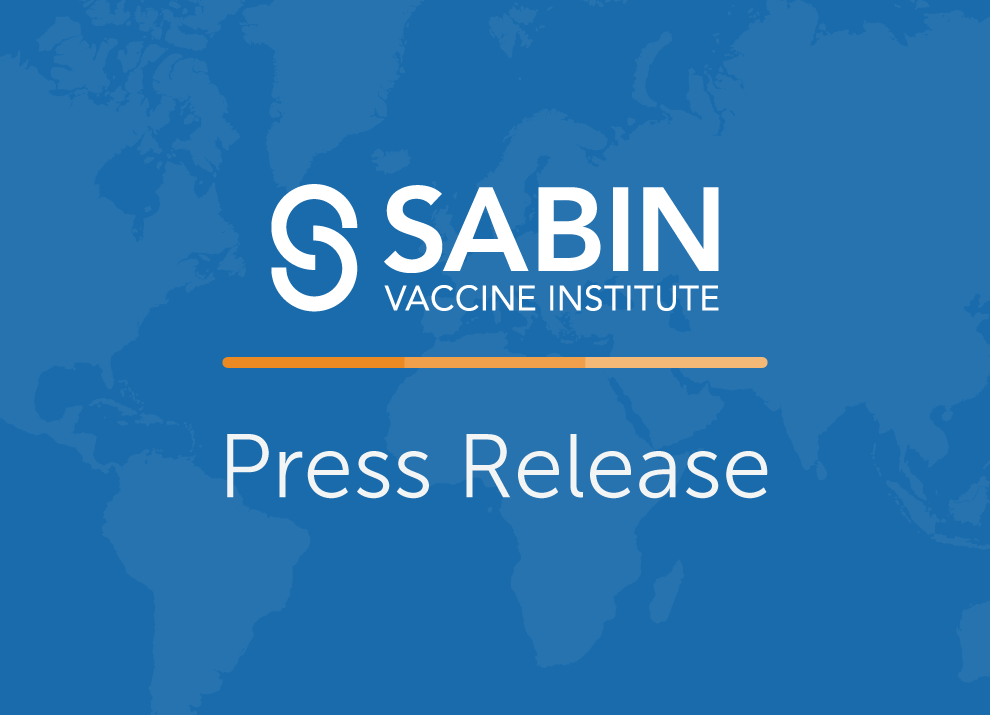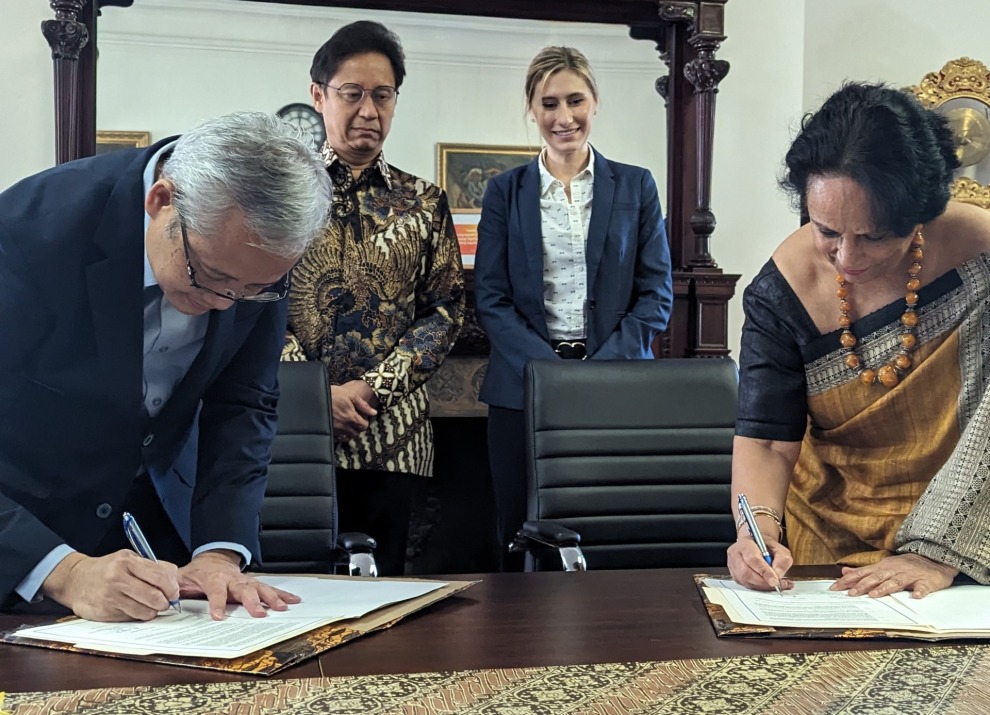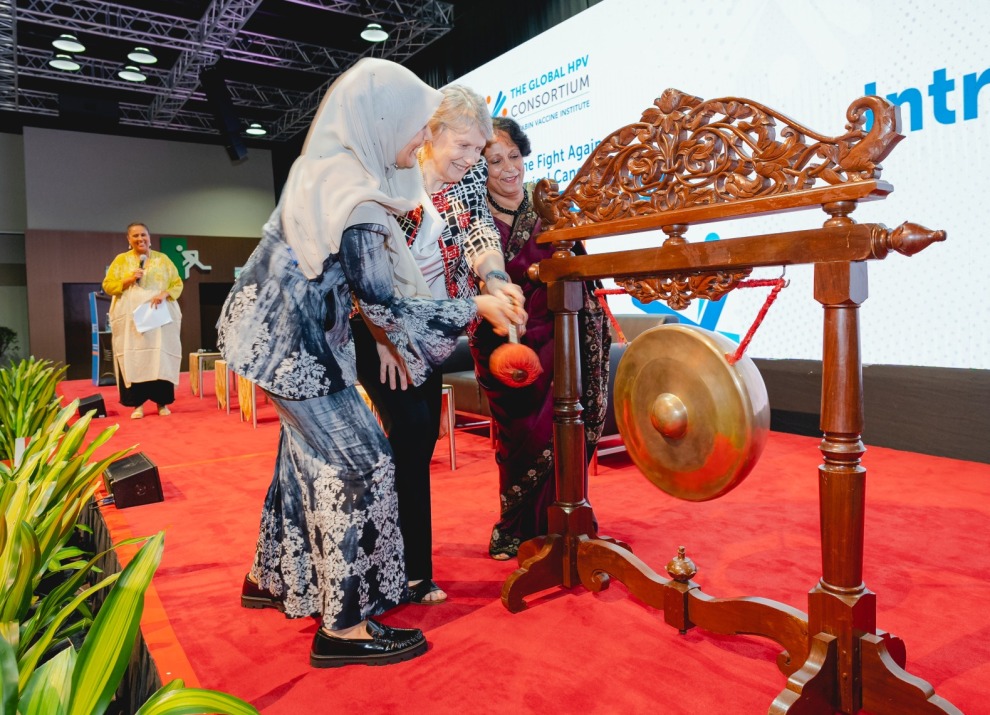Professor Gordon Dougan Receives the 2020 Albert B. Sabin Gold Medal; Sabin Vaccine Institute’s New Rising Star Award Presented to Dr. Katherine E. Gallagher

Washington, D.C. – The Sabin Vaccine Institute (Sabin) today announced that it has awarded its annual Albert B. Sabin Gold Medal to Gordon Dougan, FRS, professor in the Department of Medicine and the Cambridge Institute for Therapeutic Immunology and Infectious Disease at the University of Cambridge. Sabin also presented the inaugural Rising Star Award to Katherine E. Gallagher, MSc, PhD, assistant professor of epidemiology at the London School of Hygiene and Tropical Medicine.
The Gold Medal, now in its 27th year, is Sabin’s highest scientific honor, given each year to a distinguished member of the global health community who has made extraordinary contributions to vaccinology or a complementary field. Past award recipients include leaders of vaccinology and vaccine advocacy such as Drs. D.A. Henderson, Maurice Hilleman, Anne Gershon, Myron Levine and Paul Offit.
“We are pleased to present the Gold Medal to Gordon,” said Amy Finan, Sabin’s chief executive officer. “His work demonstrates a life-long commitment to innovating the development and delivery of vaccines, translating scientific research into practical tools and encouraging the next generation of leaders in vaccinology. His dual commitment to science and advocacy exemplifies Dr. Albert B. Sabin’s legacy in harnessing innovation for good and the belief that everyone, everywhere should have access to lifesaving vaccines.”
Professor Dougan’s research in vaccine discovery and delivery has focused on two key areas; equitable access to vaccines and information, and the application of genomics to enable vaccine development. After earning his doctoral degree from Sussex University, he spent 10 years at the Wellcome Foundation (now Wellcome), where his team utilized recombinant engineering to define the protective antigen, pertactin, now a component of whooping cough vaccines. He then moved to the Imperial College London, where he established the Centre for Molecular Microbiology and Infection.
Next, Professor Dougan assembled a world class program for teaching and research at the Wellcome Sanger Institute in Cambridge. While there, he built a department that led research on pathogen genomics and disease tracking, put antimicrobial resistance on the map as a major public health concern and pioneered the construction of attenuated strains of salmonella to aid in the development of typhoid vaccines. The open access data and technology generated under his leadership at the Institute directly impacted the creation of vaccines against many diseases including pertussis, typhoid fever and cholera, and his multi-faceted coalition-building work with the World Health Organization and Gavi, the Vaccine Alliance, led to the successful delivery of several affordable vaccines around the world.
“I’m honored to receive this award named after Dr. Sabin, whose groundbreaking invention and successful global distribution of the trivalent oral polio vaccine relates to some of my proudest professional accomplishments,” said Professor Dougan. “Open access data and technology has empowered scientists and researchers, including in low- and middle-income countries, to accelerate progress on vaccines that may be of low commercial priority, but make a substantial difference to the quality of life and health of vulnerable populations around the world. I am proud to have supported this work.”
This year, Sabin is also presenting the first ever Rising Star Award, which honors an early-career professional who has demonstrated leadership in and commitment to the field of immunization. The first ever Sabin Rising Star Award goes to Dr. Kate Gallagher for her work expanding access to immunization through thoughtful research and advocacy. She has conducted research that has informed the global recommendations for human papillomavirus (HPV) vaccine programs, supported clinical trials for Ebola vaccines in the midst of the 2014 epidemic and is now leading a trial based at the KEMRI-Wellcome Trust Research Program in Kilifi, Kenya, to test fractional dosing of a pneumococcal conjugate vaccine. Through this research, she is exploring how smaller doses of the pneumonia vaccine could result in more cost-effective and equitable access to this critical vaccination.
“For Sabin’s first Rising Star Award, our aim was to recognize an early-career researcher whose work shows great promise to positively impact immunization for the next generation,” said Amy Finan. “Kate’s research pioneering a fractional dosing strategy highlights the importance of pushing for continued innovation; not just to further scientific progress, but to dismantle prohibitive barriers to accessing lifesaving vaccines, including factors such as cost and supply.”
“I see immunization as an integral element of working toward health equity,” said Dr. Gallagher. “Vaccines are one of the easiest, most cost-effective interventions that can address some of the imbalances that occur simply based on circumstances of birth. I’m honored to receive this meaningful award, which captures the spirit of what it means to work in immunization, and am so grateful to my numerous mentors and supervisors who continue to guide me in this work.”
View the video highlighting the 2020 Albert B. Sabin Gold Medal and Sabin Rising Star Award, including remarks by Professor Dougan and Dr. Gallagher, as well as their introducers, Dr. Myron M. Levine, University of Maryland School of Medicine, and Dr. Anthony Scott, London School of Hygiene & Tropical Medicine.
The 2020 Albert B. Sabin Gold Medal was made possible in part by a grant from the Bill & Melinda Gates Foundation, and sponsorship by GSK; Merck Sharp & Dohme Corp., a subsidiary of Merck & Co., Inc.; Pfizer; and Takeda. Sponsors have no role in Sabin’s program design, development or outputs, including findings and analysis.
###
About Gordon Dougan
Professor Gordon Dougan focuses on the genetic analysis of host/pathogen interactions during infection. He has worked extensively in both academia and industry, making important contributions in the field of vaccinology and working to improve vaccine delivery to poorly resourced regions. His group exploits genomic approaches to study host-pathogen interactions and the analysis of microbial populations, and he manages teams working on vaccines, humanized antibodies and scale-up systems. Gordon has extensive teaching experience at both the undergraduate and postgraduate level. He has served on several editorial boards and regularly reviews manuscripts for high-impact journals. He is a consultant for industry and has founded biotechnology companies, including the single-chain antibody company VHSquared. Gordon is a Fellow of the Royal Society, the Biology Society, the Academy of Medical Sciences and is an European Molecular Biology Organization member. He established the Centre for Molecular Microbiology and Infection (including raising funding for a building) at Imperial College London and was the Board of Management representative for Pathogen Research for ten years (2004-2014) at the Sanger Institute. Professor Dougan leads the Antimicrobial Resistance research theme at the NIHR Cambridge Biomedical Research Centre. Visit his blog to read his recent work.
About Katherine E. Gallagher
Dr. Kate Gallagher joined KEMRI-Wellcome Trust Research Program through a secondment from the London School of Hygiene and Tropical Medicine (LSHTM) in 2018. Kate completed her PhD at LSHTM in 2016 having worked at the Mwanza Intervention Trials Unit, Tanzania, on studies of human papillomavirus epidemiology and vaccine delivery. As a post-doc she was the London-based coordinator for two phase 2b trials of a prime-boost vaccine against Ebola Virus Disease and two nested observational studies in Sierra Leone. Kate is now working with Anthony Scott to lead a large randomized controlled trial to assess whether fractional doses of the two commercially available pneumonia vaccines can protect Kenyan infants as well as the full dose schedules. The results could be used to enable countries unable to afford the full cost of the pneumonia vaccine, to continue delivering it in the childhood immunization program in the absence of external support.
About the Sabin Vaccine Institute
The Sabin Vaccine Institute is a leading advocate for expanding vaccine access and uptake globally, advancing vaccine research and development, and amplifying vaccine knowledge and innovation. Unlocking the potential of vaccines through partnership, Sabin has built a robust ecosystem of funders, innovators, implementers, practitioners, policy makers and public stakeholders to advance its vision of a future free from preventable diseases. As a non-profit with more than two decades of experience, Sabin is committed to finding solutions that last and extending the full benefits of vaccines to all people, regardless of who they are or where they live. At Sabin, we believe in the power of vaccines to change the world. For more information, follow us on Twitter, @SabinVaccine.







